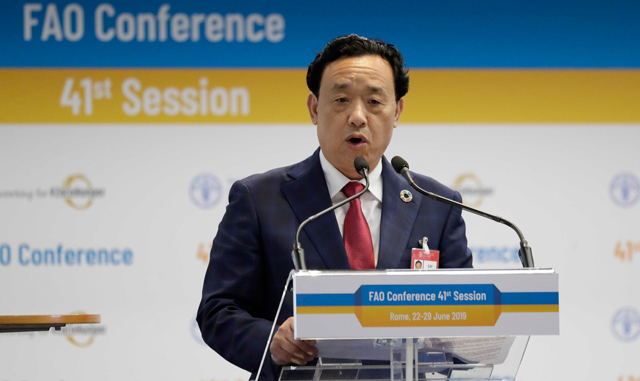
Kampala, Uganda | THE INDEPENDENT | The United Nations Food and Agriculture Organization (FAO) has said they will need up to USD 1.1billion this year to save people who are struggling with food insecurity around the world.
Blaming COVID-19 disruptions for driving hunger levels higher in many countries, the organization said in its latest statement that they aim to reach 48.9 million people who rely on agriculture for their survival and livelihood. It noted that many countries are reporting new food insecurity figures higher than what they had reported in 2020.
The true picture of what exactly transpired in 2020 is expected to be painted in the annual Global Report on Food Crises to be launched in April. but even before it comes up FAO predicts that the total number of people who experienced acute food insecurity at crisis or worse levels in 2020 is expected to exceed 2019’s high of 135 million people.
“The shocks of the past year will reverberate long into 2021 and beyond, and we need to urgently scale up actions to avert a worst-case scenario,” said Dominique Burgeon, Director of FAO’s Emergencies and Resilience Division.
He said some 30 million people are experiencing emergency levels of acute anger and are already experiencing excess mortality and the irreversible loss of vital livelihood assets. The majority of these affected are living in conflict zones where humanitarian access is restricted or challenging, according to the statement.
“Millions are living on the precipice – one stress or shock away from rapid deterioration. With or without famine declarations, we need to act now,” Burgeon added.
Agriculture is critical as nearly four out of five people live in rural areas and rely on some form of agricultural production for their livelihoods. The most severe manifestation of acute hunger remains a largely a rural phenomenon so averting famine must therefore begin in rural areas and include large-scale and collective action to save livelihoods and lives.
As part of the emergency response in 2021 for which the organization is seeking the money, the plan they say is to provide assistance to highly food-insecure communities in more than 30 countries including the Democratic Republic of the Congo, Ethiopia, Somalia, South Sudan, Syria and Yemen.
The statement notes that in other countries where they operate, they plan to expand action linked to early warnings in 2021 to speedily detect disasters and plan how to tackle them. “We will continue investing in the most vulnerable people and their livelihoods so that they can lead their future recovery and pull themselves out of acute hunger,” said Burgeon.
Generally, Burgeon notes their interventions this year are geared towards boosting local food production and nutrition, while strengthening the capacity and resilience of communities to prepare for and cope with crises, as well as providing post-disaster livelihoods support to help people resume production.
********
URN
 The Independent Uganda: You get the Truth we Pay the Price
The Independent Uganda: You get the Truth we Pay the Price




Hopefully the sound principles of water management as illustrated by the Paani Foundation and permaculture will spread worldwide.